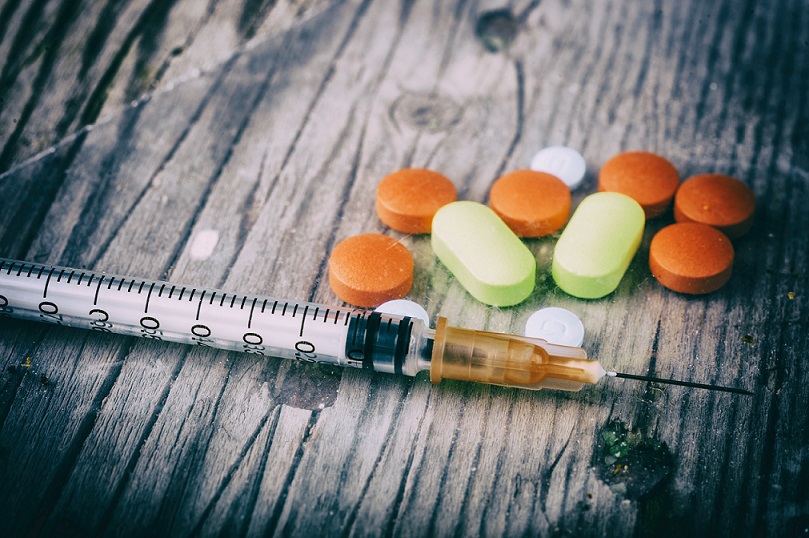The opioid epidemic continues to affect people in every state of the United States. However, Ohio holds the second-highest rate of opioid abuse when compared to other states. According to research conducted in 2017, Ohio had a rate of 39.2 opioid-related deaths per 100,000 persons. Nationally, the rate of opioid-related deaths was 14.6 per 100,000 persons. This proves that Ohio, in particular, has an extreme opioid problem that needs to be addressed.
Opioid addiction can occur after a person experiences a variety of factors. However, it is most common for a person to become addicted after being prescribed opioids for pain. Opioids create a euphoric feeling as well as alleviating the symptoms of pain, making this drug extremely addictive. Once a person is addicted to opioids, they must seek professional addiction treatment in order to ensure safety. If you are looking for an opioid drug rehab in Ohio, there are a number of factors you must consider. For example, making sure that the treatment center utilizes evidence-based treatment tactics, provides trauma-informed care, and medical detoxing services will be vital for long-term recovery.
Signs and Symptoms of Opioid Addiction
During the early stages of any addiction, individuals are able to mask their abuse of a given substance. This is true for opioid addiction, however, certain signs and symptoms will begin to appear over time. Additionally, these signs will vary from person to person depending on which opioid they abuse and how frequently they use it.
Behavioral Symptoms:
- Faking pain to receive opioid prescriptions
- Going to multiple doctors in order to obtain more prescriptions
- A decline in work performance
- Not showing up for work, school, or other responsibilities
- Isolating from loved ones
- Stealing medications
Physical Symptoms:
- Pinpointed pupils
- Nausea
- Poor motor skills or coordination
- Vomiting or diarrhea
- Scabs, sores, or puncture wounds that portray IV drug use
- Weight loss or changes in hygiene
Cognitive symptoms:
- Impaired judgment and problem solving
- Slowed thinking
- Feeling detached from your surroundings
- Difficulty concentrating
Psychosocial symptoms:
- Mood swings
- Sudden outbursts
- Irritability
- Depression
- Paranoia
If you or a loved one are experiencing opioid addiction in Ohio, it is vital that you seek treatment. Opioid abuse can lead to fatal overdose unless treated through a medically professional treatment center.
Why Seeking an Opioid Treatment Center in Ohio is Vital
It is extremely important to seek treatment for any form of addiction. However, people suffering from opioid addiction, in particular, are at great risk for overdose. Opioid overdose is becoming increasingly common, mainly due to fentanyl becoming more prevalent in Ohio. In fact, about 5,000 people in Ohio die from opioid overdoses each year.
Additionally, opioid overdoses in Ohio tend to occur due to the development of tolerance. When a person develops a tolerance, they will have to increase their opioid intake in order to receive the high that they seek. This can be problematic, especially because when you increase the amount of any drug, you also increase the risk of overdosing. Attending an opioid treatment center in Ohio will prevent overdose and allow an individual to obtain long-term sobriety.
What to Expect During Opioid Treatment in Ohio
Opioid treatment centers like Ohio Arc offer individualized treatment plans in order to address every aspect of an individual’s addiction. In order to do this, treatment begins with an initial intake assessment. During the intake process, health professionals will record your medical history, your past and current substance abuse, information on your social and family life, and determine if you have any co-occurring disorders. As a result, your doctors and therapists will be able to provide you with the most effective plan of action possible.
Detox
After completing the intake assessment, patients will begin their treatment in a medical detoxification facility. Detox is a vital step in recovering from opioid addiction due to the withdrawal process of quitting opioids. Additionally, opioid withdrawal symptoms can be extremely uncomfortable and dangerous without medical attention. Because of this, opioid detox centers in Ohio utilize medications that lessen the symptoms of withdrawal.
Withdrawal tapering medications are intended to slowly ease a patient off of opioids, with the main goal being to end their dependence. To explain, doctors will lower the dose of these medications gradually until all opioids are cleared from the patient’s system. Often times, doctors will also provide additional medication for insomnia, anxiety, or digestive issues.
Inpatient and Outpatient Treatment
After completing detox, patients are recommended to attend an inpatient treatment program. Opioid inpatient treatment centers in Ohio offers around-the-clock care, providing accountability and time away from everyday life stressors. Inpatient treatment allows patients to recover in a drug-free environment. As a result, patients are able to focus solely on healing from their addiction and addressing any mental health issues they face. Additionally, these programs offer individual and group therapy, on-site activities, and connections to recovery fellowships.
Outpatient treatment can either be utilized consecutively after inpatient treatment or as an alternative. Opioid outpatient treatment offers all of the same services as inpatient treatment other than the opportunity to live on-site. As a result, patients are able to continue holding jobs and taking care of their families. While this is beneficial for some, it can be detrimental to one’s sobriety. If you live in a toxic environment or need a break from stress, you should attend inpatient treatment initially.
Aftercare
Because adjusting to life after treatment can be difficult, opioid treatment centers in Ohio offer aftercare assistance. Learning how to maintain your sobriety while handling everyday stressors and responsibilities takes time and effort. Aftercare plans provide you with the tools and resources you need in order to successfully maintain sobriety. Therapy, support group meetings, and coping mechanisms are typically included in an aftercare plan.
[su_box title=”Additional Care Services to Utilize” box_color=”#de0001″]
- Individual and group therapy
- Family support groups like Al-Anon
- 12 step meetings (NA, AA, CA)
- Alternative recovery meetings like SMART Recovery
[/su_box]
Additionally, it is always best to adopt new hobbies after completing treatment. Often times, people think they can’t have fun anymore after getting sober. However, sobriety allows you to actually remember the fun you do have. Whatever you decide to do after completing opioid addiction treatment in Ohio, staying connected with sober support is vital. Aftercare allows you to stay connected to other recovering individuals. As a result, long-term sobriety is attainable and worthwhile. Call Ohio Arc today if you are looking to put the opioids down and begin a new way of life.







